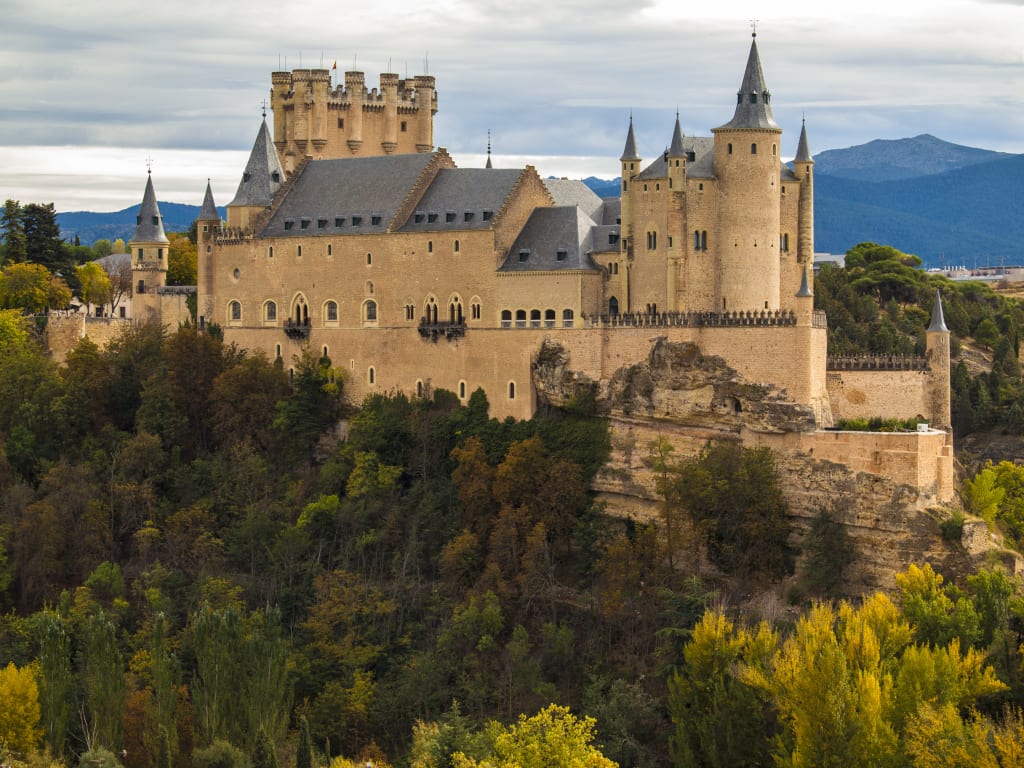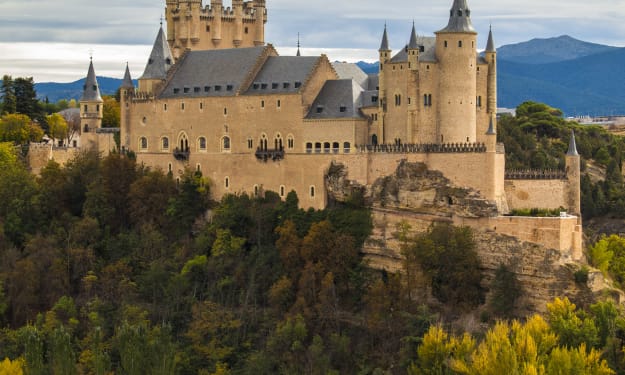An Uncrowned King Chapter 2 Part 1
Fresh Woods And Pastures New

A year had passed, and the situation in Thracia remained unchanged. The search for a king initiated by M. Drakovics had not yet proved successful, but the Provisional Government was still in office, and the Thracians lived and throve under a regimen of what their enemies called autocracy washed down by draughts of rhetoric. M. Drakovics alone, against whose life two further attempts had been made, looked out ahead with troubled eyes, and yearned for the tall Englishman who had seemed likely to prove such an efficient coadjutor in his task of governing.
In England, however, the year had not been barren of changes. General Lord Caerleon slept with his fathers in the family burying-place in Llandiarmid Abbey, and Viscount Usk’s place in the House of Commons knew him no more. Misfortune seemed to dog this young man’s footsteps. Once again he had obtained leave to bring in his Bill, but it had been deliberately talked out by the Labour members in revenge for his voting against them on one of their pet questions. There was thus no help for him, and on his father’s death he was compelled to vacate his seat, and seek the serene retirement of the Upper House. Moreover, the constituents whom he was so sorry to leave did not display on this occasion the fixity of purpose with which he had always credited them, for they rejected with ignominy the candidate who inherited his principles, and chose as their representative an agitator who promised to bring in a Bill to divide the Llandiarmid domain among them in the shape of allotments.
Nor was this all, for before very long he found that even the possession of a historic house and innumerable heirlooms was not an unmixed privilege. The marquisate was by no means a rich one, for its inheritors had all indulged a reprehensible taste for investing their spare cash in works of art instead of more easily convertible securities, and the succession duty on these bade fair to ruin their unfortunate possessor. The owner of land which would not let, and of pictures which he could not sell, he found himself forced to raise the necessary money by means of mortgages on his unmanageable property, when all other means had failed. The interest on these mortgages was another important consideration, and when, after settling matters as far as possible, the new Marquis and his brother met one evening in the great hall at Llandiarmid to talk things over, the outlook was far from cheerful.
“It’s quite evident that we can’t keep up this place, Cyril,” said Caerleon. “If I could let it for a year or so, and get the house in town off my hands, I think we might just tide over the present difficulty.”
“Surely it would be enough to sell Caerleon House,” said Cyril, lazily, but with some surprise in his tone, as he sat with his arms behind his head and looked at his brother. “No one will expect you to entertain much here while you are in mourning, so you can lie low for a year or two and keep down expenses.”
“It’s not only of the actual expenses of the place this year that I am thinking,” said Caerleon, “but of the future. I want to put things right for you, Cyril, and to do that I must save.”
“Oh, don’t trouble yourself about me,” said Cyril, lightly. “I have always fallen on my feet hitherto, and I suppose you’ll find me a crust and a shake-down in your diggings, wherever they are.”
It had been a shock to Caerleon to discover, from some words his father had let fall on his deathbed, that he had made no special provision for Cyril, leaving him almost entirely dependent on his elder brother, and that this omission was due to design, and not to forgetfulness.
“I want you two to stick together,” said the old Marquis to his elder son, “and therefore I have not left Cyril anything of his own. He has your mother’s money, which will keep him from starvation, but for anything more he must come to you. He may have some consideration for your money, but he would be sure to speculate with anything that was in his own power.”
Caerleon found this utterance hard to reconcile with the high opinion his father had once expressed of Cyril’s shrewdness and worldly wisdom, and he also resented the arrangement as unfair to Cyril. What if he should desire to marry? Hence his eagerness to put matters on a more satisfactory footing.
“I am afraid that things will have to remain as they are just now,” he said; “but you may be sure that as soon as possible I shall do what I can for you.”
“Thanks, awfully,” yawned Cyril. “But what about the present? When you have succeeded in leaving yourself without any rest for the sole of your foot except your London lodgings, what do you mean to do?”
“What is there to do?” asked Caerleon. “I can do no good in the Lords, and I can’t stay in the Commons. They even take away from me the means of living on my own place——”
“And cultivating the higher faculties of your tenants, and making Llandiarmid a social centre for all the art and learning and enlightenment of the county,” said Cyril. “Well, granted all this, what then?”
“Let us go abroad,” said Caerleon, suddenly. “We haven’t had a prowl together for years, and we can sink our titles and live on the cheap.”
“By all means,” said Cyril. “Let us leave our ungrateful country, which presents our ancestors with dinner-services and swords of honour and statues and plate, which we don’t want and mustn’t sell, and makes us pay duty on them. The wide world is before us. Where shall we turn? I say, let us go to Kashmir and shoot mountain sheep, or Polar bears, or my lord the elephant, or anything we may come across.”
“Won’t do,” said Caerleon. “I should have you knocking up again, right away from all medical help. It must be somewhere nearer home.”
“Oh, let’s go to Bournemouth or Torquay, then. So cheerful, and so novel, and plenty of doctors.”
“No, I know. We will go to Hungary and look up Gyula Temeszy. He promised us some wolf-hunting if ever we came to see him.”
“Very well. I haven’t met him since he came down to Eton to see his old tutor again, and tipped me a sov. because I was your brother; but I suppose he’ll know you all right, and accept your references for my respectability. Going to write to him now?”
“Rather not. We will drop in on him and take him by surprise, and then we can loiter on the way if we like, and not rush across Europe by express. We will go quietly, and look out for adventures.”
“All right; then you intend to walk, I suppose? That means no servants, of course.”
“We won’t make any cut-and-dried plan, but go as we choose, and I don’t see why we shouldn’t tramp it occasionally, when you feel up to it. I won’t take Jameson, certainly, and I don’t think you’ll want your man. Let us take Harry Wright between us. He can turn his hand to most things, and he’ll be useful if we are obliged to get horses. We may have to ride to Temeszy’s place. I fancy there’s no railway near it.”
“I’m agreeable,” said Cyril; “and we’ll stay away until we yearn for home again, and feel able to say, ‘England, with all thy faults (and you’ve a beastly lot of them), I love thee still.’ We don’t at present.”





Comments
There are no comments for this story
Be the first to respond and start the conversation.